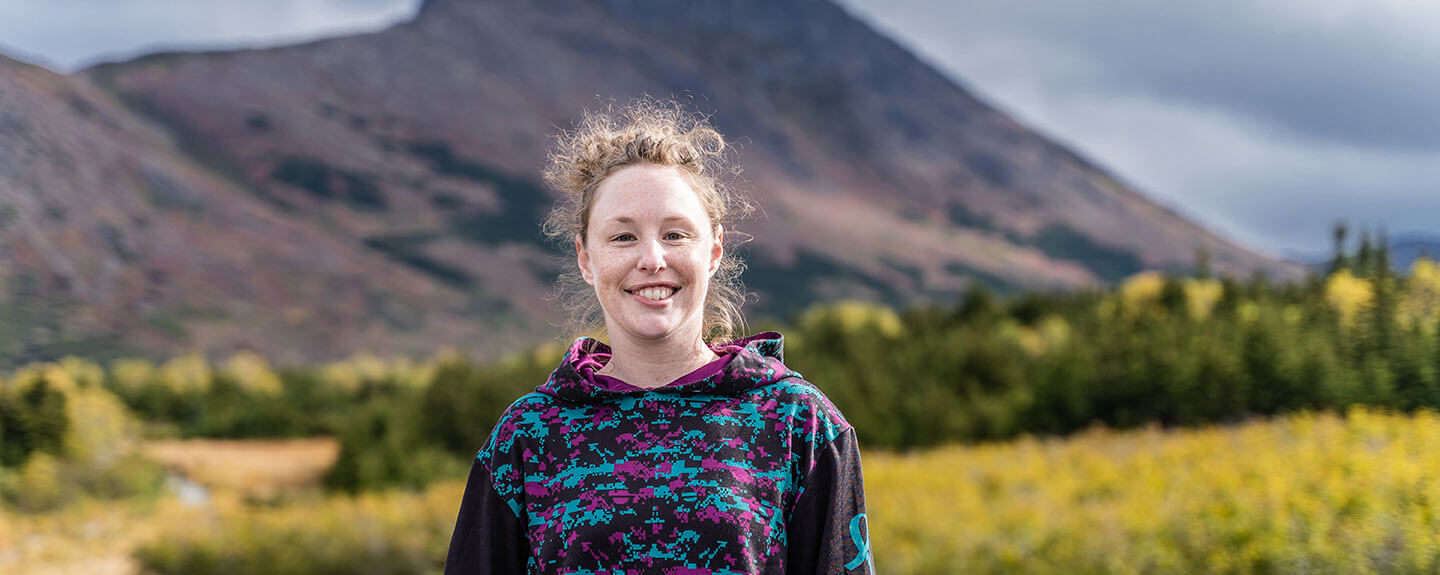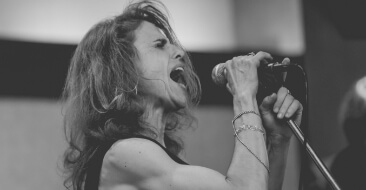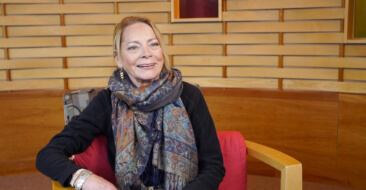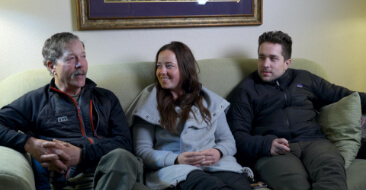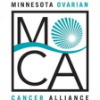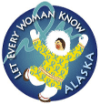“I remember my dad combing his hair in the mirror and just crying because it was falling out.”
Ali Tolman was only four years old when her father was first diagnosed with stomach cancer. He received three diagnoses between Ali’s fourth and seventh years of life, two rounds of stomach cancer, and prostate cancer on the third diagnosis. It was a defining experience of her formative years.
Ali distinctly remembers how her father lost a lot of weight and became frail. “He was super sick all the time and spent most of his time resting on the couch,” she says. Most of all, she remembers how he just couldn’t play anymore. She felt scared and uncertain. Her parents did too.
Ali’s father did not have health insurance the first time around. They lost everything they had in debt. “We had no extra,” Ali says. “My mom handmade everything. We never went out to eat. We shared one car and we walked everywhere, even in winter. We didn’t get huge gifts at Christmas.”
At first, Ali’s parents shielded her and her two siblings and sent them away to the homes of some relatives to find some stability. They were living in Delta Junction, Alaska, until medical bills rose so high that they had to sell everything and move closer to Ali’s mom’s parents in Seattle.
Ali and her siblings bounced between Washington and Alaska, which although not ideal, was the best their parents could do in the face of trying circumstances. It was tough on the whole family. “My sister wasn’t doing well in school,” Ali recalls. “Teachers were calling my parents and saying, ‘Your daughter was an A student and now she’s failing her classes. What’s going on?” She became quiet.
Ali, on the other hand, raised her voice and made it quite clear to everyone what she thought of the situation, saying to her relatives, “This is not my home. You are not my parents.” She just wanted to be at home with her family, she explains, but eventually she fell quiet too.
Her parents decided to have a healthy family conversation where they explained what was going on with Ali’s father. It was this experience that paved the way for a close-knit family bond, an open and honest dialogue about cancer, and ultimately, Ali’s life work. She’s now the Executive Director of Let Every Woman Know – Alaska, and Alaska-based non-profit raising awareness for gynecologic cancers.
“Let Every Woman Know – Alaska has a three-part mission,” she says. “Awareness, education, and support.”
To raise awareness, Let Every Woman Know – Alaska participates in many local community events. “We want people to see us in the community, to know that we’re there,” Ali says. “We want every woman in the whole State of Alaska to know the signs and symptoms of gynecologic cancers.” The stigma around gynecologic cancers is significant. “People think that ‘you did something wrong’ to get gynecologic cancer,” she says. “That simply isn’t true, and not knowing the symptoms and talking about them is killing women. They’re really subtle.” Let Every Woman Know – Alaska is talking to doctors across Alaska and giving Continual Medical Education (CME) approved talks to the medical community to raise awareness and get people talking.
“The medical community doesn’t always know when to refer patients to specialists,” Ali says. “We’re telling them, if you see anything you can’t explain on a CT scan or an ultrasound, there are specialists in State who can help you figure it out.” The talks reach three new cities in Alaska each year.
The second arm, support, is one of the most important parts of the work Ali and Let Every Woman Know – Alaska are doing. They offer caregiver and survivor retreats, workshops, support groups, and pamper nights for women who want to come and simply “feel good.” Ali says the challenge with support is a different stigma. “Women who have cancer sometimes have a hard time asking for help,” she says, “They need to feel empowered and confident to show up.” Another challenge is the focus on cancer itself. “They also don’t want to talk about cancer,” Ali says. “They’re tired of all the areas of their life that cancer rules. They want a feeling of community where cancer is not the main thing that brings them together.”
Ali is committed to creating a program that best meets these women’s needs. For this reason, Let Every Woman Know – Alaska is reformatting their support groups to be more activity-based, allowing deeper connections to happen on a one-on-one basis. “You have to be careful as a non-profit to not do things at people,” she says. “You have to be doing it for and with them, something they actually want.” The people Let Every Woman Know – Alaska serves are not just the survivors of gynecologic cancer, but the caregivers as well. They have their own set of challenges, and they put a lot of pressure on themselves to be strong.
“They feel like it’s their full responsibility and duty. Sadly, many do not care for themselves or express their feelings and they feel guilty and ashamed if they need help. But you need a whole group of people to not get burnt out!” She’s speaking out to encourage women. “Ask for help. Say what you need.”
Everyone who becomes involved with Let Every Woman Know – Alaska becomes family. Because of her childhood experience and work with Let Every Woman Know – Alaska, Ali excels at building relationships with the caregivers and survivors of cancer. She knows that “doing it for and with them” means being there when they’re ready to get involved and not forcing anything on anyone. “You just have to make yourself available to people and let the conversation happen,” she says. “You don’t have to speak, just listen and respond. They’ll remember the positive interaction.”
Ali’s father is very proud of her work.
When he was first diagnosed with stomach cancer, he received chemotherapy. At the time, a cancer patient only had one shot with each treatment, chemo and radiation, so when he was diagnosed the second time, he received radiation therapy. On the third diagnosis with prostate cancer, he was told that he could not be treated, and they sent him home. Ali’s father was determined to try everything until he found a solution, and he researched radical dietary changes to help him overcome cancer. One year later, the cancer miraculously disappeared.
Today, Ali’s father is very vocal about cancer. “He believes that if you survive something horrible, you now have a voice and the credibility to speak into people’s lives that you wouldn’t otherwise have,” Ali says. “And that you need to use that with everyone you can as a connection for support.”
Like Ali, her father makes himself available to caregivers and survivors. He visits the hospital, counsels people over the phone, and talks to families who don’t have the courage to communicate with one another. “My dad gives tough love,” Ali says. “One of his biggest pet peeves is when people don’t talk to one another. You have to face it. Cry it out, laugh, and then face it.”
Ali has gone to more funerals than most, but she says she wouldn’t change it for anything. Let Every Woman Know – Alaska provides grief counseling for the bereft. They do a memorial service every year. “We do a write up and a slideshow, we have a grief counselor speak, then we open the floor to let the families speak about whatever they want to,” Ali says. “At the end, we all stand in a circle, Dr. Joanie Hope plays the guitar, and we sing.”
Ali is grateful for the opportunity she has at Let Every Woman Know – Alaska to give back to her community and her father. “Cancer takes away so much,” she says, “I feel like I can honor him.” Her voice has only grown stronger over time, and she’s determined to keep raising her voice.
